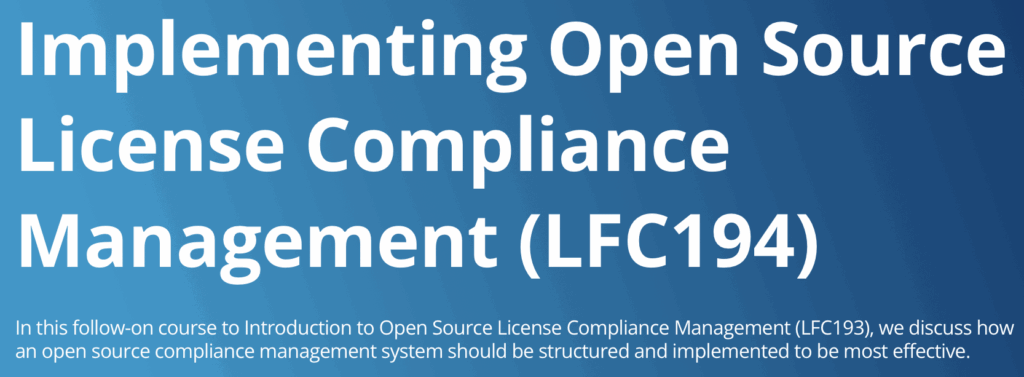How we work:
As always anyone is welcome, it is not required that you are part of the list or a member of OpenChain, not for that matter identifying as a Telco company. Feel free to invite those you think would benefit from participating.
Agenda:
Information about the May meeting of the Telco Group (not much activity thus the lack of MoMs.
A first look at the “draft specification”.
Trademark discussion.
Discussion of possible F2F get together.
Dial-In details below.
The Telco group meets the first Thursday of each month, our meeting cadence can be found here:
https://www.openchainproject.org/community
Our charter and work program can be found here:
https://docs.google.com/document/d/1B6SAOqB-yEu3H0JrTUpF3Sa1f7QBGu22_kOaSsN2GlM/edit?usp=sharing
Dial-In Information:
https://zoom.us/j/4377592799
Meeting ID: 4377592799
Check your timezone:
PDT United States Pacific UTC-07:00
UTC Coordinated Universal Time UTC
CET Central European Time UTC+01:00
IST India Standard Time UTC+05:30
CST China Standard Time UTC+08:00
KST Korea Standard Time UTC+09:00
JST Japan Standard Time UTC+09:00
One tap mobile:
+13017158592,,4377592799# US (Washington DC) 13126266799,,4377592799# US
+(Chicago) 13462487799,,4377592799# US (Houston)
+16465588656,,4377592799# US (New York) 16699006833,,4377592799# US (San
+Jose) 12532158782,,4377592799# US (Tacoma) 18773690926,,4377592799# US
+18558801246,,4377592799# US 14388097799,,4377592799# Canada
+15873281099,,4377592799# Canada 16473744685,,4377592799# Canada
+16475580588,,4377592799# Canada 17789072071,,4377592799# Canada
+12042727920,,4377592799# Canada 18557038985,,4377592799# Canada
Dial by your location:
+1 3017158592 US (Washington DC)
+1 3126266799 US (Chicago)
+1 3462487799 US (Houston)
+1 6465588656 US (New York)
+1 6699006833 US (San Jose)
+1 2532158782 US (Tacoma)
+1 8773690926 US
+1 8558801246 US
+1 4388097799 Canada
+1 5873281099 Canada
+1 6473744685 Canada
+1 6475580588 Canada
+1 7789072071 Canada
+1 2042727920 Canada
+1 8557038985 Canada
Find your local number: https://zoom.us/zoomconference



